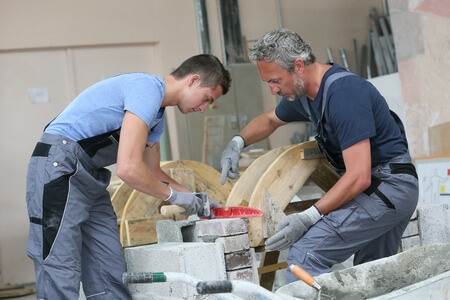I’m recalling a moderately adverse experience that started with a phone call. My wife was about to return home from a shopping excursion at a mall about 30 miles away when her car wouldn’t start. She asked me to drive to the mall to give her a jump-start because it would be quicker than waiting for roadside assistance.
Thirty minutes later, I had my jumper cables out and got her car started. She asked me to follow her back in case something happened along the way. Everything was fine until she turned off the Interstate at our exit and stopped at the intersection. The motor stopped running again and wouldn’t restart. This was distressing because this intersection is one of the busiest in our area, and it was at the end of a hot Sunday of water recreation for many (drunk?) drivers.
Fortunately, the left-turn lane was blocked off for construction, and I maneuvered to the left of her car so the cables would reach. I got the car started again, but while idling it quit again. With more stoplights ahead, we realized that we might not be able to drive the car home. So we called our insurance company for a tow truck to take it to the dealership.
I instructed my wife to put the car in neutral so I could push it out of the traffic lane. We then had to wait for over an hour until the tow truck arrived. Even though the dealership was closed, the driver knew how to leave it in the service area for us.
We didn’t make it home until after 10 pm.
The next day I found out the battery had to be replaced. With tax, it came to $170.
And so it goes. We put a positive spin on the experience. My wife said, “It was a good thing the car quit right next to an unused lane.” I remarked that yes, that was lucky. But it was the “it could have sucked worse” kind of luck.
The ordeal reminded me of another bottom line: Life is hard. It’s not easy to create a life for yourself, have a family and hold it all together. A million crises just like this one are standard issue. Dealing with this incident took more than money. It took effort, rationality, composure, patience, decisiveness, optimism and maybe one or two other personal strengths.
I thought: The real purpose of being a parent is to prepare kids to handle a life crisis like this when they’re grown and on their own.
And this: You don’t prepare your kids for real life by giving them everything, protecting them from adversity and doing everything for them.
They learn to solve problems by solving problems. They acquire a work ethic by doing work. They get stronger by doing hard things.
Love is good. Shelter, clothes, food, and safety are good. An education is good. But beyond that, kids have a lot to learn – the kind of skills and behavior patterns they can learn only by doing them over and over. And the adolescent children who aren’t learning these things aren’t preparing themselves and are going to be at a serious disadvantage when they try to get traction it in the adult world.
 And helping your child develop vital thinking skills is perhaps the best way to prepare them for leaving the nest. My new book: How Your Teen Can Grow a Smarter Brain.
And helping your child develop vital thinking skills is perhaps the best way to prepare them for leaving the nest. My new book: How Your Teen Can Grow a Smarter Brain.
You can grow the bond with your child through better listening. Download the FREE ebook, Listening to Understand.

